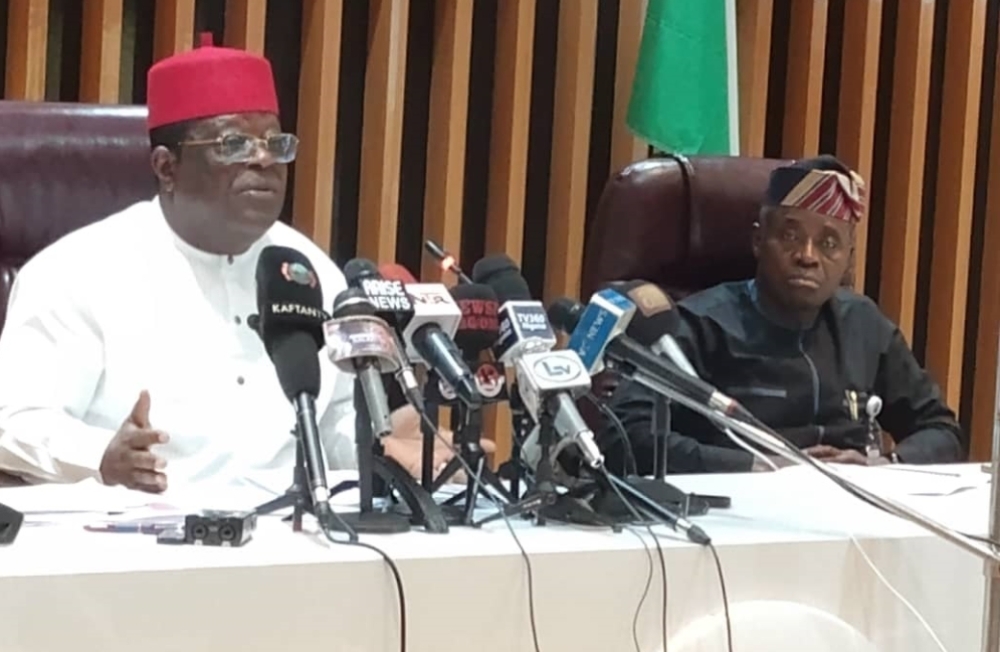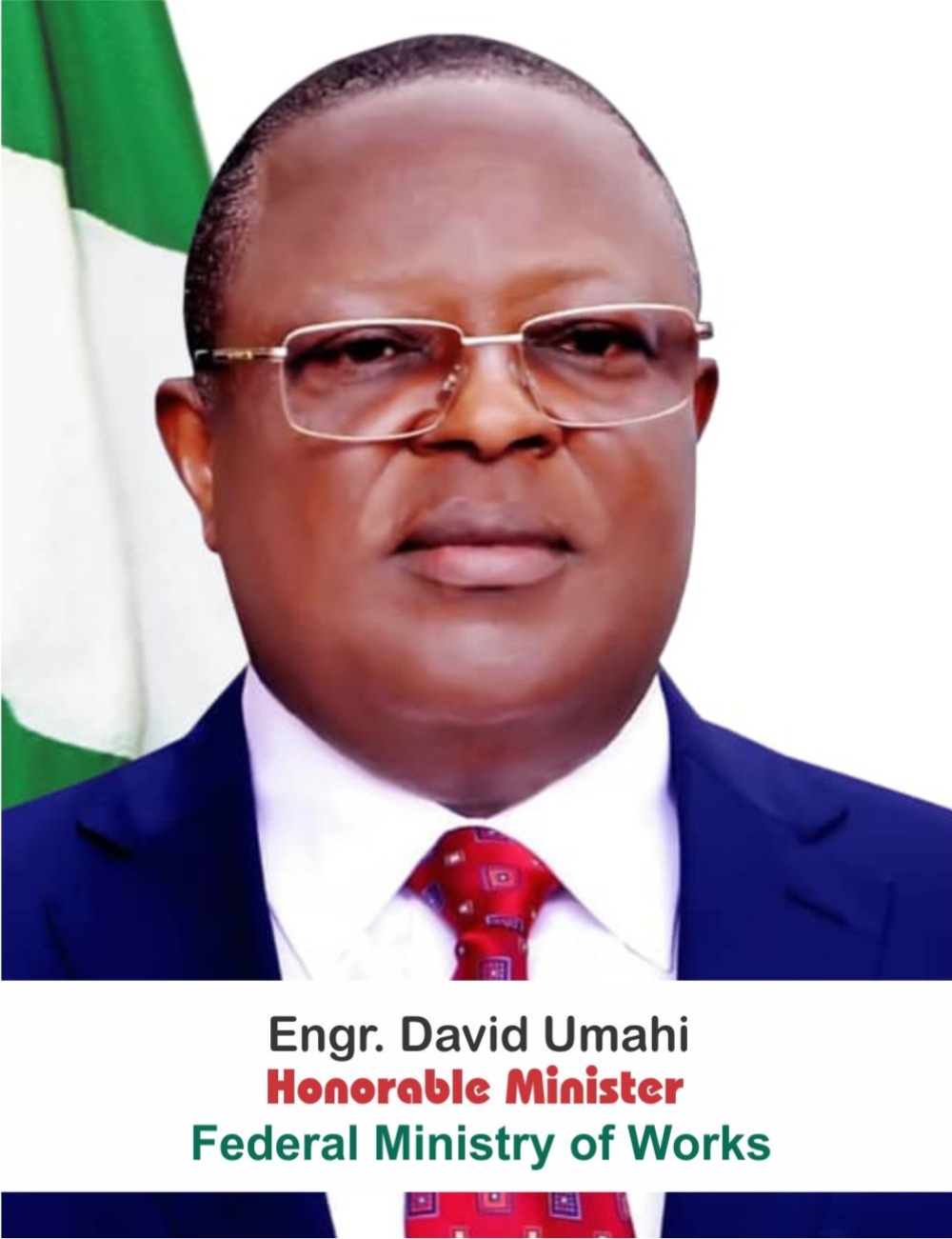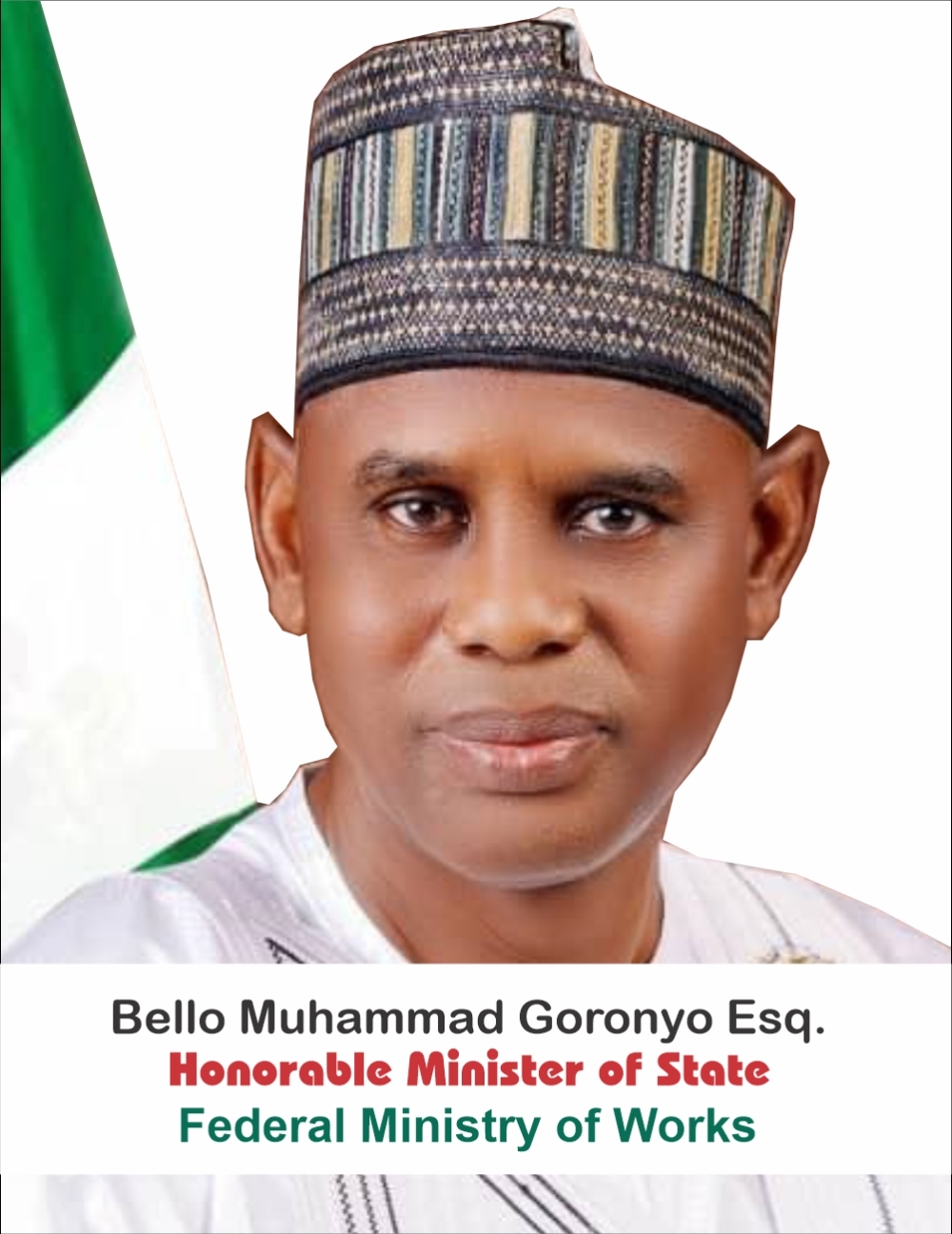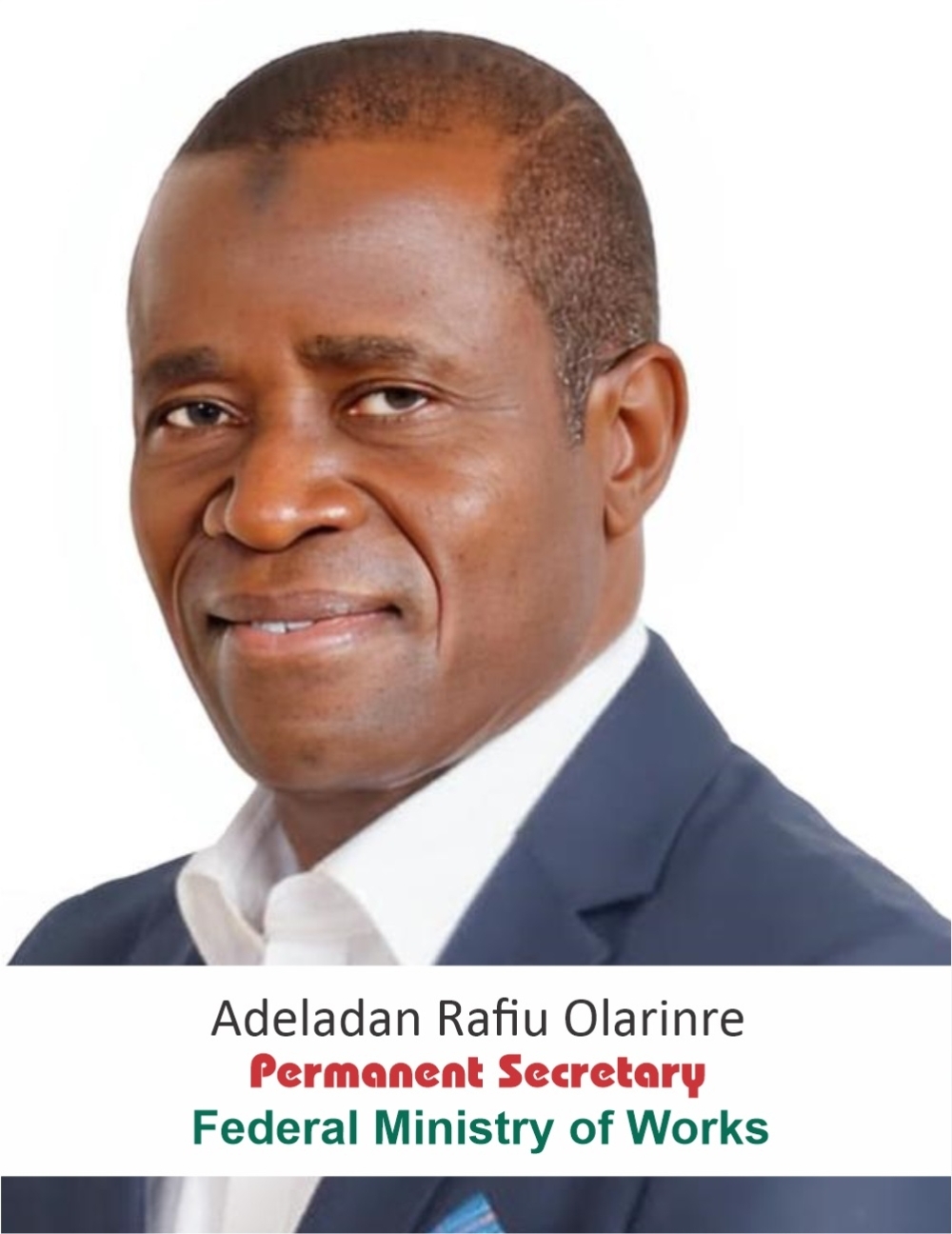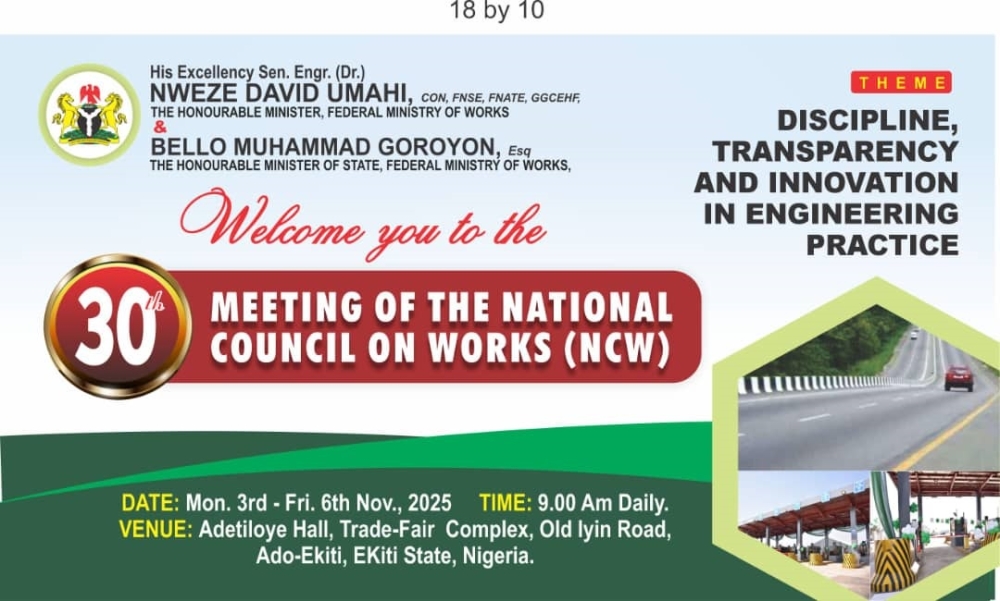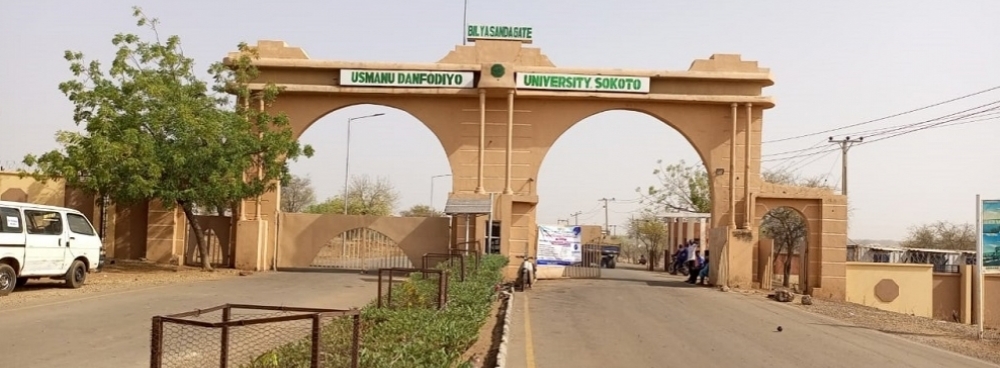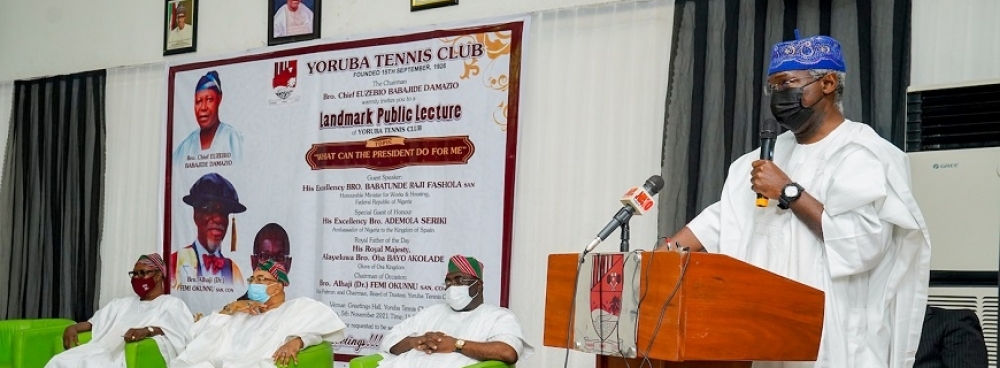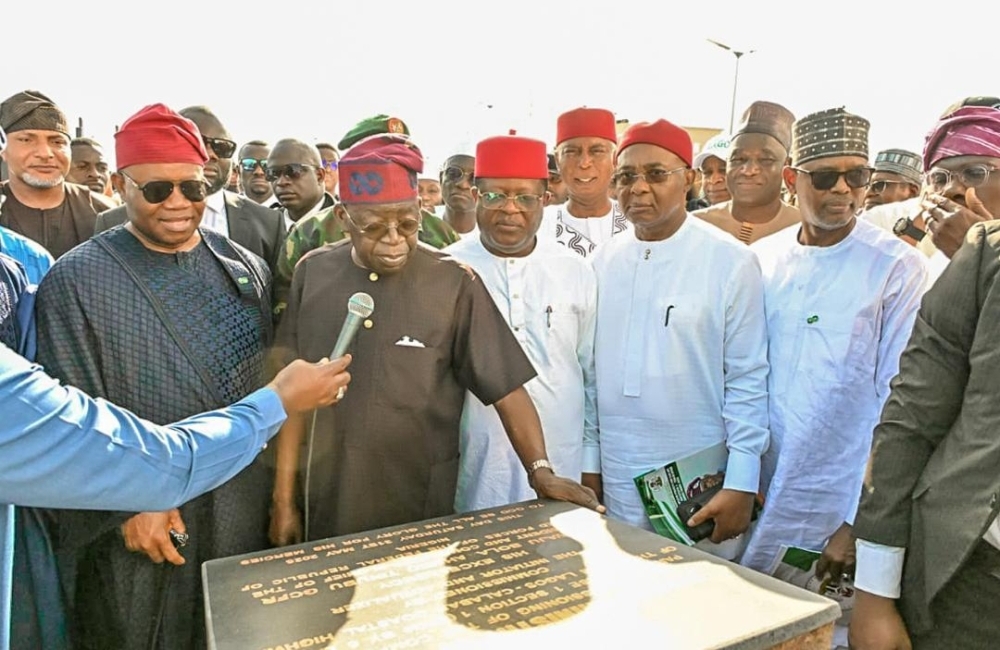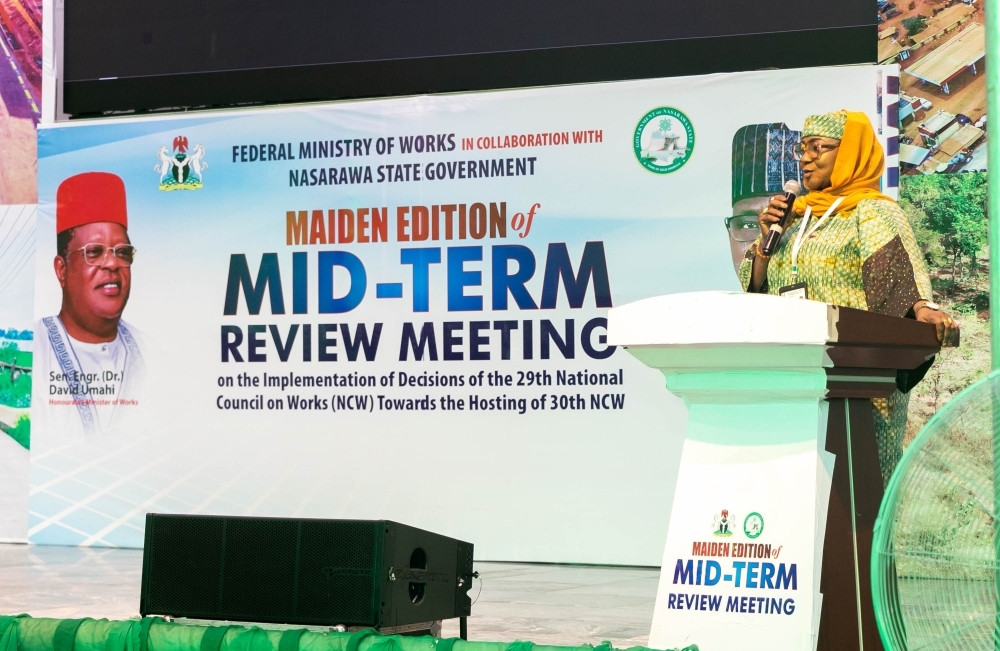WHAT CAN THE PRESIDENT DO FOR ME? BEING THE TEXT OF A KEYNOTE DELIVERED BY H.E BABATUNDE RAJI FASHOLA, SAN AT THE YORUBA TENNIS CLUB ANNUAL LECTURE
Distinguished Ladies and Gentlemen:
At the onset of the protest against the Special Anti-Robbery Squad (SARS) when five demands were made in respect of the police and SARS, President Muhammadu Buhari weighed in on the side of the protesters when he said:
“On Monday 12th October, I acknowledged the genuine concerns and agitations of members of the public regarding the excessive use of force by some members of SARS…As a democratic government, we listened to, and carefully evaluated the five-point demands of the protesters. And, having accepted them, we immediately scrapped SARS, and put measures in place to address the other demands of our youth.”
To some of the protesters this was not enough action. In my interaction with some of them, young and not so young they wanted the President to sack some policemen, in some cases even the Inspector General of Police.
During this interaction I referred them to the provisions of the 1999 Constitution as amended, that I pointed out to them that:
* The President of Nigeria cannot sack a policeman because a policeman is not the employee of the President but rather the employee of the Police Service Commission;
* The President can only sack Ministers, and other appointees that he personally appoints to assist him and not any civil servant deployed to work for him such as a cook, driver, or administrative staff who are ordinary employees of the Civil Service Commission.
Not a few persons were surprised to hear this.
Indeed, I have discovered that a sizeable number of our people express surprise when I explain the structure of Government to them.
For example, when I explain to people that as Governor or Minister I do not sign cheques, vouchers or documents that directly involve the transfer of money.
On the contrary, at certain levels of payment under the financial regulation, my powers as Governor or Minister are limited to approving recommendations for payment made to me through the Permanent Secretary; after he and I have satisfied ourselves that the Government has received value for the payment or will do so.
Although the Federal Ministry of Works and Housing has several directorates such as Construction and Rehabilitation, Planning and Development, Bridges and Design, Materials Geotechnics and Quality Control, Finance and Accounts, Legal and Procurement, many openly express surprise when I tell them that only Engineers, Architects, Valuers, Builders, Town Planners and those involved in the built industry are staff of the Ministry of Works and Housing.
Those in Legal Department are lawyers seconded from the Ministry of Justice to whom they report, Finance and Accounts are staff of the Accountant General/Ministry of Finance, to whom they report, and procurement personnel are staff of the Bureau of Public Procurement to whom they report; while those in administration are staff of the Head of Service/Public Service Office to whom they report.
And this is true of all ministries, in a system of checks and balances.
Similarly of course, in the engineering sections of other ministries, the Ministry of Works also seconds engineers to support those ministries and they report to their parent ministry.
What is true of the Federal civil service system in this regard is largely true of the state civil service systems.
This in part is why the public service is a bureaucracy, which has been defined as:
“…a complex organization that has multi-layered systems and processes.” (Source - Investopedia)
I am surprised that this surprises people and this is a part of the reason for choosing to discuss it at this public forum.
So very often, I hear general statements that the President of Nigeria is very powerful, sometimes they say the office is too powerful in some cases they even ascribe more powers to him than the United States President.
Therefore I have decided, in responding to the invitation of Chief Babajide Damazio, the Chairman of the Yoruba Tennis Club, to interrogate the matter publicly by titling my speech “What can the President do for me?”
The flip side is also that some of our public discourse is coloured with general statements that are not factual such as some statements to the effect that the Vice President is in their words “just a spare tyre” suggesting that he has no powers or functions except those assigned to him by the President.
These statements betray a lack of knowledge about the Constitution and I intend to discuss them here within the reasonable limits of time.
If one looks through the length and breadth of the constitution as I have, you will find that the office of the President is referred to 48 (FORTY-EIGHT) times.
A closer look at the details for those who have read the constitution, will suggest possibly an error in mixing up or conflating “powers” with “function” and the difference is significant.
“Whereas ‘power’ is the legal right or authorisation to act or not to act, it is the ability conferred on a person by law to alter, by an act of will, the rights, duties liabilities and other relations, either of that person or another. On the other hand, the term “function” is the duty of the office.
In the 48 mentions of the Office of the President in the Constitution:
* 23 instances refer to powers exercisable by the President;
* 9 instances refer to powers exercisable by the President subject to the National Assembly;
* 4 instances refer to powers exercisable by the President subject to other institutions;
* 9 instances refer to the President’s functions and duties; and
* 3 instances refer to restrictions on the powers of the President.
Yes, the “all powerful,” “too powerful” President that we generalise about his powers, has restrictions on his powers.
I have provided a table of all the references in the Constitution below:
Part A: Powers exercisable by the President
| |
|
Section |
| 1 |
The executive powers of the Federation is vested in the President |
Section 5(1)(a) |
| 2 |
The executive powers include the power to execute and maintain the Constitution |
Section 5(1)(b) |
| 3 |
Power to execute and maintain all laws made by the National Assembly |
Section 5(1)(b) |
| 4 |
Power to make treaties [Power conferred on the Federation] |
Section 12 |
| 5 |
Power to deprive registered or naturalized citizens of their citizenship |
Section 30 |
| 6 |
Authorization of qualified private persons to establish a television or wireless broadcast station |
Section 39 |
| 7 |
Power to assent (or withhold assent) to bills passed by both the Senate and the House of Representatives |
Section 58 |
| 8 |
Power to decide whether or not it is practicable to hold elections |
Section 64 |
| 9 |
Power to issue proclamation for the holding of the first session of the National Assembly |
Section 64 |
| 10 |
Right to attend joint meetings of the National Assembly or of either the Senate or the House of Representatives to deliver an address on national affairs or to make statement on government policies |
Section 67 |
| 11 |
Power to order withdrawal of moneys from the Consolidated Revenue Fund of the Federation for the purpose of meeting expenditure necessary to carry on the services of the Government |
Section 82 |
| 12 |
Establishment of offices of Ministers of the Government of the Federation |
Section 147 |
| 13 |
Assignment of responsibilities to the Vice President and Ministers |
Section 148(1) |
| 14 |
Power to appoint or remove Chairman and members of Federal Executive Bodies established by section 153 of the Constitution |
Section 154 |
| 15 |
Approval of rules of procedure made by the Federal Executive Bodies established by section 153 of the Constitution |
Section 160 |
| 16 |
Power to approve delegation by the Federal Civil Service Commission of its power to any of its members or to any officer in the civil service of the Federation |
Section 170 |
| 17 |
Power to appoint and remove the following officers: Secretary to the Government of the Federation, Head of Service, Ambassadors, High Commissioners and Permanent Secretary, etc |
Section 171 |
| 18 |
Power to give approval to a State body where it is intended by the body to confer power or impose duties to any officer or authority of the Federation |
Section 204 |
| 19 |
Power to give lawful directions to the Inspector General of Police with respect to the maintenance and securing of public safety and public order |
Section 215(3) |
| 20 |
Power to direct the armed forces to suppress insurrection and acting in aid of civil authorities to restore order |
Section 217(2)(c) |
| 21 |
The President is the Commander-in-Chief of the armed forces of the Federation and as such is empowered to:
* determine the operational use of the armed forces of the Federation;
* appoint the Chiefs of Staff of Defence, Army, Navy, and Air Force; and
* appoint heads of any other branches of the armed forces of the Federation. |
Section 218 |
| 22 |
The Constitution vests the Executive power for the administration of the Federal Capital Territory in the President |
Section 299 |
| 23 |
Power to appoint a Minister for the Federal Capital Territory |
Section 302 |
| 24 |
As the Appropriate Authority, the President is authorized to make modifications in the text of any existing law as he considers necessary to bring the law into conformity with the provisions of the Constitution |
Section 315(2) |
| |
|
|
Part B: Power subject to the National Assembly
| 1 |
Power to declare a state of war between the Federation and another country [subject to the sanction of the National Assembly] |
Section 5(4) |
| 2 |
Deployment of members of the armed forces of the Federation on combat duty outside Nigeria. [subject to approval of the Senate] |
Section 5(5) |
| 3 |
Making regulations to prescribe matters which are required to give effect to constitutional provisions on citizenship [subject to laying before the National Assembly] |
Section 32 |
| 4 |
Appointment and removal of the Auditor-General for the Federation |
Section 86 |
| 5 |
Appointment of Ministers |
Section 147 |
| 6 |
Power to appoint Special Advisers to assist the President in the performance of his functions. [Their number is to be determined by the National Assembly] |
Section 151 |
| 7 |
Power to appoint the Chief Justice of the Federation, Justices of the Supreme Court of Nigeria, President of the Court of Appeal, Justices of the Court of Appeal, Chief Judge and Justices of the Federal High Court and Justices of other Federal Courts. [Subject to confirmation by the Senate] |
Sections 231, 238, 250, 254B, etc |
| 8 |
Power to remove the Justices and Judges appointed by him [Acting on address supported by 2/3 majority of the Senate or NJC] |
Section 292 |
| 9 |
Power to issue a proclamation of a state of emergency in the Federation or any part thereof in the circumstances listed in section 305(3) and (4) of the Constitution |
Section 305(1) |
| |
|
|
Part C: Power subject to other institution
| 1 |
Deployment of members of the armed forces of the Federation on a limited combat duty outside Nigeria. [in consultation with the National Defence Council] |
Section 5(5) |
| 2 |
Power to grant a pardon to any person convicted of any offence created by an Act of National Assembly (Prerogative of mercy)
[This power is to be exercised by the President after consultation with the Council of State] |
Section 175 |
| 3 |
Power to accept or reject report of population census conducted by the National Population Commission.
[This power is subject to the advice of the Council of State] |
Section 213 |
| 4 |
Appointment of the Inspector General of Police
[This power is to be exercised on the advice of Nigeria Police Council] |
Section 215(1)(a) |
| |
|
|
Part D: Functions and Duties
| 1 |
Considering recommendations from a body set up to review ownership and control of business enterprises operating in Nigeria |
Section 16(3) |
| 2 |
Approving the registration of persons who apply to be registered as citizens of Nigeria |
Section 26 |
| 3 |
Granting of certificate of naturalization to persons who are qualified |
Section 27 |
| 4 |
The President has the responsibility to cause budget to be prepared and laid before the National Assembly |
Section 81 |
| 5 |
Duty to hold regular meetings with the Vice President and the Ministers of the Government of the Federation |
Section 148(2) |
| 6 |
Tabling of proposals for revenue allocation from the Federation Account to the National Assembly |
Section 162(2) |
| 7 |
Duty to transmit copies of official gazette containing emergency proclamation to the President of the Senate and the Speaker of the House of Representatives |
Section 305(2) |
| 8 |
The President is the chairman of the following constitutional bodies:
The Council of State
* National Defence Council
* National Security Council
* Nigeria Police Council |
|
| 9 |
Duty to lay accepted report of population census conducted by the National Population Commission before the National Assembly.
[This power is subject to the advice of the Council of State] |
Section 213 |
| |
|
|
Part E: Restriction
| 1 |
Prohibition from holding any other executive office or paid employment |
Section 138 |
| 2 |
Prohibition from maintaining or operating a bank account in a country outside Nigeria |
Fifth Schedule to the Constitution |
| 3 |
Prohibition from being employed by foreign company or foreign enterprises after leaving office |
Fifth Schedule to the Constitution |
| |
|
|
Is the Vice President really without responsibilities, duties and functions unless the President assigns them to him?
Certainly not. Those who assert that position tell a big lie. A lie born either out of ignorance at the best or mischief at the worst.
The framers of the Nigerian Constitution and our legislators seem to have deliberately attempted to entrust matters relating to its security with the President by making him chairman of the National Councils such as the Security Council, Defence Council and the Police Council, while entrusting the Vice President with matters relating to the economy by making him the Chairman of the National Council on Privatization and the National Economic Council.
Although they did not say the President cannot deal with economic matters, it is my view that he cannot chair the Economic Council or National council on privatization without violating/breaching the constitution with its attendant constitutional risks and consequences.
So much for the “all-powerful” President.
As for the Vice President, his other constitutional functions include:
| |
SECTION A
Constitutional Function and Duty of the Vice President
|
Constitutional Provision |
| 1 |
Exercise of Executive Powers of the Federation as delegated by the President |
Section 5(1)(a) |
| 2 |
Power to perform the functions of the President as Acting President during temporary absence of the President |
Section 145(1) |
| 3 |
Power to hold the office of the President if the office of the President becomes vacant by Section 146 |
Section 146(1) |
| 4 |
Performance of ‘responsibility for any business of the Government of the Federation’ as may be assigned by the President |
Section 148(1) |
| |
SECTION B
Constitutional Appointment/Position |
Constitutional Provision |
| 1 |
Deputy Chairman of the Council of State |
Third Schedule, Part I, Paragraph B (5) |
| 2 |
Chairman of the National Economic Council |
Third Schedule, Part I, Paragraph H (18) |
| 3 |
Deputy Chairman of the National Defence Council |
Third Schedule, Part I, Paragraph G (16) |
| 4 |
Deputy Chairman of the National Security Council |
Third Schedule, Part I, Paragraph K (25) |
| |
SECTION C
Statutory Function/Position |
Statutory Provision |
| 1 |
Chairman of the Governing Council of the National Emergency Management Agency |
Section of National Emergency Management Agency Act |
| 2 |
Chairman of the Governing Board of the Border Communities Development Agency |
Section 2 Border Communities Development Agency (Establishment, etc.) Act |
| 3 |
Chairman of the National Boundary Commission |
Section 4 National Boundary Commission (Establishment) Act |
| 4 |
The Vice President may represent the President of the Federal Republic of Nigeria as the Chairman of the Governing Council) |
Section 8 Nigeria Sovereign Investment Authority (Establishment etc.) Act 2011 |
| 5 |
Chairman of the National Planning Commission |
Section 3 National Planning Commission Act |
| 6 |
Vice Chairman of the Council of the National Space Research Development Agency |
Section 2 National Space Research and Development Agency Act |
| 7 |
Chairman of the Supervisory Board of the Debt Management Bureau |
Section 2 Debt Management Bureau (Establishment) Act |
| 8 |
Chairman of the National Council on Privatisation |
Section 9(2) Public Enterprises (Privatisation and Commercialisation) Act |
| |
|
|
Which brings me to the heart of the matter, as to why a significant number of Nigerians place their hopes and expectation for a better life on their President rather than their Governors and Local Government Chairmen.
Or put differently, why do we seem to only like our Presidents after they have left office and not while in office or after they have died, like “the best President we never had.”
Again, after a very deep interrogation, my answer to this question is traceable to the constitution. And this is not a concession to the advocates of restructuring, but rather a clear lack of relationship by many of us with the constitution.
In other words, we are not fully or sufficiently familiar with our constitution and the roles it ascribes to the different levels of government, at local, state and federal, and the officers attaching to them such as Local Government Chairman, State Governor and the President.
And the related question, to the question what can the president do for me, is to ask ourselves: how the office of the President make my life better?
Before I offer an answer, let me share with you the feedback of a survey that I commissioned to gauge the sense of what the Nigerians who were polled desired most.
The common thread in the responses were: security, education, healthcare, transportation, water supply, employment, housing and electricity. Of course, there are others, which time and space will not permit me to interrogate.
In understanding what the President can do, we must bear in mind the nature of our political arrangement where the President as head of the country, also leads the executive arm of the Federal Government and projects our sovereign status, but shares power and responsibility with 36 states headed by Governors, and 774 Local Government headed by Local Government chairmen.
If we go through our constitution, (and I urge everybody to get a copy and read it if only casually) we will find two (2) lists of responsibilities in the schedule to the constitution.
They are:
* The Exclusive list
* The Concurrent list
The first list contains matters over which only the National Assembly, as the custodian of legislative power of the Federal Government can make laws and over which the President as the head of the executive arm can take action. This list contains 68 (SIXTY-EIGHT) items and includes matters like the banking, currency, police, the military, customs, immigration, citizenship etc.
The second list, which is called the concurrent list, means exactly what it says. A concurrence of authority where the Federal and State governments share power and therefore the state houses of assembly as well as the National Assembly can make laws over these matters; while the Governors, as well as the President, can act in these areas.
This list contains 12 (TWELVE) items and includes matters like Education (secondary and university including polytechnics) Health (secondary and tertiary), Electricity (generation, transmission and distribution).
This list does not include primary education or primary health or sanitation or markets which are expressly left for the Local Governments in the 4th schedule of the constitution.
All matters not listed in these two lists or in the fourth schedule to the constitution such as magistrate courts, consumption tax, rent control, local levies and non-specified taxes, are regarded as RESIDUAL, and the sole preserve of the state governments.
Manifestly and contrary to the view that everything revolves around the President or the Federal Government, what is obvious from the Nigerian constitution and political arrangement, what we really have is an arrangement of shared powers, and I might add, shared responsibility. The question then must be, whether all those who bear responsibility actually discharge them; and I will come back to this in some comparative examination of some of the problems identified earlier that people seek government action for.
But before I do so, I need to quickly shed light on even the nature of the Federal Government.
The Executive arm, such as the Federal Executive Council, has the President and Vice-President elected by the people of Nigeria, and at least 36 ministers appointed from each state as prescribed by the constitution that every state must have a Minister. It also then prescribes that the ministerial nominee must be cleared and approved by the Senate.
And who is the Senate? 109 people, elected by you and I, whether you voted or not, 3 from each state to represent us in the Federal Government because there is no building big enough to accommodate us so we send representatives.
The FCT also has one Senator. The House of Representatives, the other arm of the National Assembly has 360 members from all the 36 states who act to exercise legislative powers over the exclusive list, to determine what the Federal Executive can act upon.
When you see how the structure is laid out, what is obvious to me and hopefully to you, is that it is the people of Nigeria, rather than one man, (the President), who truly have powers and responsibility over our affairs.
Let us now then look at a few examples, because there are many, to examine how these powers have been exercised.
Let me start with electricity. As I said it is a concurrent power by the federal and state. The Federal Government since 2013 has chosen to privatize its own responsibility by selling the generating and distribution assets, while managing the transmission side with varying degrees of success.
The question to ask is what is happening at state level across Nigeria with electricity generation, transmission and distribution.
This question cannot be posed to the President. He is not in charge of any state. He did not elect or appoint a Governor. You and I did.
So I am not suggesting that all electricity problems are the responsibility of the state Governors, but if you have an electricity problem in your states please ask your Governor what he plans to do about it, and your House of Assembly lawmaker which law he will support if you vote for him to give you electricity.
The same applies to primary education and primary health. The Federal Government does not and should not own a primary school or primary healthcare centre. But these are the most defining centres for quality education and preventive health. The foundations of young life are defined here. Basic literacy and numeracy, ante-natal care and life protecting immunization are delivered here.
Please ask your Local Government chairman not the Governor or the President.
Sanitation, characterized by water supply and proper refuse management and civic education are not the constitutional responsibility of the Federal Government, your Senator, house of representative member or the President.
It is our state representatives who have constitutional mandate to deliver water to our homes, move our refuse and make sure our surroundings are clean and we do not suffer from disease and epidemics.
Because I expect that there will be responses, whether informed or uninformed to what I already said and will say, let me be clear that I have not come to absolve the Ministers, the Senators, House of Rep, Federal Civil servants and the President of responsibility.
We have our responsibilities and can do a lot more, but I first sought to clear the air and state the facts for those right thinking and indeed well-meaning Nigerians who honestly want a better life and do not know who is responsible for the problems they face.
So, let me go to a contentious area, like Security.
Section 14.2 (b) of the Constitution provides that:
“the security and the welfare of the people shall be the primary purpose of government…”
Interestingly, it does not say which government. My view is that security is an all government responsibility not a Federal Government responsibility alone.
Yes, the Federal Government controls the apparatus of coercive law-enforcement prescribed in the constitution like the military and police, but it has not precluded states from setting up certain types of law enforcement for traffic, sanitation etc.
I am also a public advocate for states to control their own law enforcement apparatus in other extensive areas where they have powers to make laws.
However, I hold the view that security, which is a concern of some of the people, is not guaranteed by having a state law enforcement apparatus.
Indeed, it is more than a government affair.
In my view, it is an all nation affair as contemplated in section 24(e) which provides that:
“It shall be the duty of every citizen to…render assistance to appropriate and lawful agencies in the maintenance of law and order…”
It seems to me that the road to resolving our security problems, starts with a resolution to prevent or resolve the existence of conflict, eliminate the opportunities for crime to happen, and this requires effort from the family unit to the schools, religious institutions, to all levels of government.
It requires a reset of our values for hard work, a love for one another as a keeper of each other, brothers and sisters, a commitment to peaceful cohabitation and the mustering of the capacity to ensure that no conflict lasts to the next day, whenever any occurs.
This will reduce the need for law-enforcement and put less pressure on them.
It is more than a job for a President, Governor, Local Government chairman, or legislator at any level. It is a job that requires parents at home, teachers in schools, religious leaders in places of worship, title holders like Obas, Emirs, Chiefs like Obis, Baloguns, Turakis, Asiwajus, Bashoruns, Galadimas, Ezes and many more.
This again does not absolve the need for well-equipped law enforcement or excuse those responsible, as it does not absolve the need to stem and stop drug abuse in our society, and the need to reduce or eliminate abandoned buildings where suspicious people thrive in our society and need for street lighting at night to deter criminal atrocity.
I cannot conclude this intervention without mentioning road infrastructure.
Nigeria as a country has 200,000 plus kilometres of roads. But they belong to different levels of government.
Federal trunk roads, mentioned in item 11 of the executive legislative list is the one the Federal Government is responsible for
These are the roads that connect one state to the other, interstate roads. These account for 35,000km out of the 200,000km representing 17.5 %.
The state government roads are 17.5% of the 200,000 km and these are the roads that connect one Local Government to another; while the Local Governments have responsibility for the balance, representing 65% of roads that connect one ward to another.
I cannot of course ignore the fact that the Federal Government has a big and important role to play in respect of fiscal and monetary policy that impacts exchange rate, interest rate and inflation.
But there are legitimate questions to ask about how many local businesses need foreign exchange to operate as much as they need water, electricity and skilled personnel and lower levies and non-state actors from extorting them.
There is a legitimate question to ask about whether those of us who keep bank accounts are ready to accept lower deposit rates as a measure to induce lower lending rates, because high interest rates affect our people.
And of course, with housing on the rental side, how many of us who own houses are ready to accept monthly payments as rent paid in arrears as against two (2) years rent paid in advance, which is a point of pain and stress for many people.
While the properties for which these rents are charged largely belong to individuals and companies, not to government, there is also the question to ask whether or not our legislators at state levels can make laws to control rent. This is not a matter for the president because the federal legislator has no powers over rent.
On the construction side of housing, we must remember that it is the state Governors who control land, not the Federal Government. While the Federal Government is currently constructing houses in 34 states, and developing site and service schemes on land provided by state governments and using employee’s contribution to fund mortgages to help some people buy houses, there is a legitimate question to ask whether your state government is building houses and ready to create a mortgage funding institution.
Ladies and gentlemen, there is a lot to expect of a President, there is perhaps much more to ask of State and Local Government actors.
After all, the projection of national might and success on the international stage by heads of Governments such as Presidents, whether in terms of cuisine, technology, sports or the economy, is the projection of the aggregate of what happens at their sub-national entities.
Now that you know who to ask about primary education, primary health, water supply, refuse management, electricity, security, interest rate, roads and a lot more, please know that candidates will soon begin to emerge as 2023 beckons. Do not keep quiet.
Ask them what they will do to make your life better.
Thank you for listening.
Babatunde Raji Fashola, SAN
Honourable Minister of Works and Housing
Friday 5th November 2021
